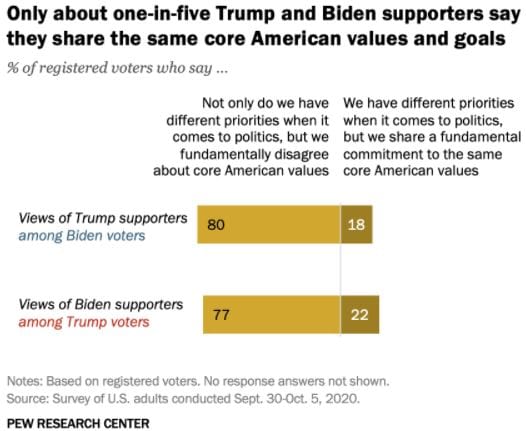 Writing the Declaration of Independence / Picture Credit: Wikipedia
Writing the Declaration of Independence / Picture Credit: Wikipedia
Introduction
The outcome of the US election is a wake-up call for many in favour of democratic principles, defined by the acceptance of majority rulings as compromise between diverging opinions. Since its declaration of independence from Great Britain and its incorporation of human rights in 1778, the once celebrated global showcase of democracy has come under scrutiny. A leadership-style more prone to lower instincts than civilized behaviour got the support of about 73 million Americans compared to 78 million for President Elect Joe Biden. Perhaps, as some historians point out, a true democratic mindset never really existed although the parliamentary system of ‘checks-and-balances’ exercised by the senate, the congress, the supreme court and the presidency were designed for the wellbeing of all. The declaration of independence and its separation from British colonial control was spurred by Thomas Paine’s immensely popular Pamphlet on Common Sense. In arguing for American independence, Paine denounced the British monarchy and argued that people are born into a state of equality. An advocate of natural rights theory, Paine claimed that there are no natural rulers among men. The first ten amendments of the Constitution—the Bill of Rights—limit the powers of the federal government protecting the rights of all citizens, residents and visitors in American territory, defined by freedom of speech, freedom of religion, the right to keep and bear arms, the freedom of assembly and the freedom to petition.
Industrialization as the driving force towards global power
One should keep in mind that technology and its progression towards today’s 4th industrial revolution is one major reason why the US has become the global power it represents today. With its capitalistic, market focused economy supporting the implementation of cost-cutting innovations and its minimum effort for social human welfare protection, the fear of losing one’s job due to mechanization and automation set a dividing line between conservatives and liberals right from the start of the US democracy. What kept the country together was the ideal of the “American Dream” with the belief that one just had to try hard enough to be successful as illustrated by citizens like Jeff Bezos, one of the world’s wealthiest individuals who started Amazon by delivering books to customers with his pick-up truck. As the division between wealth and poverty continuously increased with academia fostering a new elite of highly paid individuals, especially in AI-related activities, discontent among a large portion of the population grew to the point where the slogan ‘Make America Great Again’ has mobilized voters in large numbers not seen before.
‘Trumpism’ and the division between emotional belief and rational thought
There is no doubt that Donald Trump has said many things that would have been political suicide for any other Republican candidate. Some believe that many of those who support Donald Trump do so because of ignorance — basically under-informed or misinformed about the issues at hand. The seemingly obvious solution would be to try to reach those people through political ads, expert opinions, and logical arguments that educate with facts. But none of those seem to be swaying any Trump supporters from his side. Manipulative messaging at an emotional level is Donald Trump’s approach to gain public support. He offends and insults and makes promises he has no intention of keeping. A well-supported theory called ‘Terror Management Theory’, originally developed by social psychologists in the late 1980’s, assumes that humans have a unique awareness of their own mortality. This creates existential terror and anxiety that is always residing below the surface. In order to manage this terror, humans adopt cultural worldviews — like religions, political ideologies, and national identities — that act as a buffer by instilling life with meaning and value. Terror Management Theory predicts that when people are reminded of their own mortality, stipulated by fear-mongering as practised by Donald Trump, they will more strongly defend those who share their worldviews and national or ethnic identity while acting more aggressively towards those who do not. He uses the pull of his awe-inducing personality convincing many of his followers to be the leader of ‘Real Americans’, assembled in a mythical cult-like organisation, divorced from any rational arguments.
The Division of Values between Democrats and Republicans
While these psychological arguments might explain the gut-level reaction of Trump supporters, a substantial rift in socioeconomic values and beliefs has increasingly polarized Republicans and Democrats over the last 10 to 20 years. Studies conducted by the Pew Research Center in October 2020 show that Democrats and Republicans largely disagree on key values and goals as depicted by the following graph:

Overwhelming majorities of both Biden and Trump supporters said in October 2020 that a victory by the other candidate would lead to lasting harm to the nation. 90% of Biden voters said this about the prospect of a Trump victory, and 89% of Trump voters said it about the prospect of a Biden win. Around eight-in-ten in both camps said Biden and Trump supporters not only disagree over politics and policies, but that they also disagree over core American values and goals. This is a very different response compared to the situation twenty years ago, at the end of the Clinton-Gore years, when the U.S. was victorious in the Cold War, trying to build a freer, more integrated, more peaceful and a more prosperous world while—for the first time in a generation—during a period of eight years, typical Americans’ wages and salaries were rising rapidly.
The elected officials who take the oath of office in January 2021 will be representing two broad coalitions of voters who are deeply distrustful of one another and who fundamentally disagree over policies, plans and the very problems that face the country today. Trump and Biden supporters differ significantly over the importance of the economy, health care, climate issues and how to deal with the consequences of the Corona pandemic. What both sides will be faced with, however, is the existential threats due to the rapid erosion of jobs. In 2018, artificial intelligence expert Kai-Fu Lee estimated that AI and automation would take over half of human work in 15 years, a number which has been previously confirmed by various studies from Gartner, McKinsey and others. The pandemic is likely to shorten that timeline. As an example, due to the advantage of reducing human contact and the threat of virus infection, the design and application of a new generation of intelligent robots will accelerate the replacement of jobs beyond current levels.
Strategies to fight unemployment
Technological advances have destroyed jobs since the beginning of industrialization. However, new job opportunities requiring new skills are often created following layoff-periods. Consider the paradigm example of the automobile industry. Thousands of jobs were lost by the arrival of robot-assisted production lines. Yet thousands of new jobs were created for design, marketing and servicing the cars. Mass production had lowered the cost that more and more people could afford to buy a car. The problem we face today is the exponential growth of new AI-based products and services and the reduced timespan available for retraining and realigning human resources as exemplified by the following scenarios:
- The pandemic is throwing record numbers of people out of work—and many will never go back to their old jobs. Retraining the 50+ generation is difficult if not impossible as the cognitive capacity to learn new concepts is diminishing. What will help, however, is the provisioning of new tools. Companies historically outfitted their employees with the tools they needed for being productive, from tractors on farms to spreadsheet programs in offices.
- Creative professions are likely to withstand the rise of robots. Hence, much more needs to be done in supporting the creativity-focused future of work. Creativity represents the most significant human asset vis-à-vis the growing computational intelligence of machines. Today’s focus on STEM, educating students in science, technology, engineering and mathematics, needs realignment, provisioning more time for studying liberal arts and humanities.
It is easy to see automation as a threat and there is no doubt that it will cause very painful disruptions in the workforce. In the end, though, the transition from productivity-centered jobs to creativity-centered ones will offer new opportunities while many socioeconomic issues remain to be resolved such as the distribution of wealth, guaranteed income, work-life balance etc.
Conclusion
The belief that common sense could provide the basis for mending the different beliefs within our society is rapidly eroding. With the emergence of AI-technology, the age-old struggle for political and economic power has gained new momentum. As issues such as free will, human rights or freedom continue to engage our minds, AI is changing our socioeconomic structure in a revolutionary context through:
- Accelerating scientific progress and knowledge generation, applying deep learning technology
- Automating human brain activities, reducing administration, transportation and production costs
- Optimizing decision making, assisting humans in managing complex life situations
These potentially positive developments are tied to an unprecedented ability in monitoring and influencing human behaviour through global, internet-based communication activities. Moreover, AI-based technology has opened new windows for robot-assisted warfare and cyberattacks, threatening public and corporate infrastructures. Hence it comes as no surprise that totalitarian minded organisations are tempted to take control while trust in our democratic institutions is eroding. While these technologies — and the often-unregulated companies who created them — claim to be well-meaning, democracy is under attack from destructive actors using these transformative tools in troubling ways. The business models based on profiling and advertising were never designed with preserving democracy in mind. Yet the only alternative to Democracy is Dictatorship, there is nothing in between. Hopefully, the upcoming US administration will be successful in reducing frustration and hate under the slogan of ‘Making Democracy Great Again’. It might be our last chance to stem the tide of revolutionary destruction.
…..the tide of revolutionary destruction……..made possible, enlarged, accelerated, aggravated through algorhythms of AI – a proof of the drastic efficiency of KI, albeit towards negative goals. I congratulate the specialist of AI on this critical comment!
Hello Peter,
personal thanks for this very relevant essay.
Enemy definition (fear invention), propelled and become for many people the dominant element- permanent- persistent propaganda hammering. Accelerated by exponential mass movements (emotion), had in history similar, worse devastating results.
Usually the defined enemy was a minority allowing to condition/manipulate a majority for dictatorships. The US election enemy polarization (inside divide) is much different almost half, half (risk of instability remains high).
Last night I had a longer phone call with my brother living still in Zurich (me in France). We also discussed why 70 Million Americans could try to re-elect Trump. We mentioned the differences between Federal Government (CH) versus US and the education system, media diversities and quality (in this respect I mentioned him again your essays).
Having lived, worked and traveled a lot in the US (also our mother is Swiss-American) we are sure concerned how the situation could be improved to result in some stimulating balance with China (healthy tech competition instead of another cold war).
Being creative means no fear of change but implementing it, as you outline forward looking visionary, changes are absolutely imperative.
Changes need to be governed also by ethical principles not only the ‘American dream doctrine’ where dream remains the lifelong keyword for the very vast majority. Positive changes in our complex, connected world can only be governed via full support of tech and AI (establish and maintain simple, trustworthy base information which is understandable, perceivable by any human, independent on his/her education or intellectual capabilities. Basically agree on common and individual values and the human-machine relation in the new world)
Best greetings
Hannes